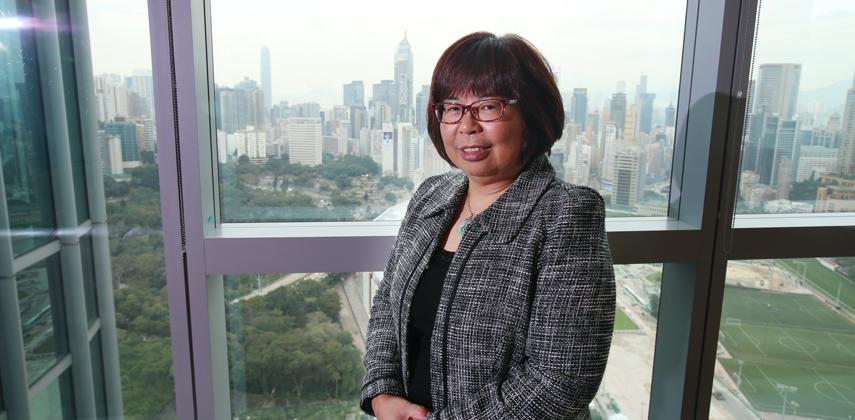With a rapidly ageing population, the needs of hospitals and medical services have become ever more urgent, driving the demand for the nursing profession from public and private hospitals. Hong Kong Sanatorium and Hospital (HKSH) set up its own nursing school in 1927 and, more recently, has put forward different measures to retain its employees. These include the provision of sufficient resources for on-the-job training and exchange programmes conducted in collaboration with major universities worldwide. The hospital also encourages its enrolled nursing graduates to continue their studies to become registered and specialist nurses.
With the completion of new hospitals and the expansion of existing ones in the coming years, the demand for nurses will increase. Manbo Man Bo-lin, director of nursing services at the hospital, says that both public and private hospitals are facing the problem of professional health care staff shortage. “There are at least several hundred beds in each new hospital, which requires around 500 to 1,000 nurses to meet the demand. This is almost the number of nursing graduates each year.” The profession is also female-dominated, and female employees often have reservation about working on shifts when they decide to start a family. “Nursing needs more new blood to fill the vacancies left behind by the retirees.”
Man points out that nursing skills, techniques and equipment are different from the past due to advancement in medical technology, and the profession should keep abreast of the times. For instance, the hospital supports nurses to continue their studies and it subsidises enrolled nurses in their training to become registered nurses. “We also sponsor overseas exchange programmes. Workshops and clinical attachments are organised in collaboration with many renowned overseas universities, including UCLA, UCSF, the University of Toronto and the University of Melbourne. A total of 76 students were sent for overseas clinical attachment programme in 2016.”
Elaine Wong Yee-ling, acting nursing officer II at the hospital, took part in the overseas exchange programme, with full subsidy from the hospital in 2016. “By working with the nurses in the US, I got a better understanding of their health care system. I was also able to take a closer look at how the electronic system, advanced technology and equipment can improve service quality and patient safety. It really broadened my horizon.”
Sammi Tung Hoi-shan entered the nursing school upon graduation from secondary school, and she says it provides its students with allowances and a well-established training plan. “Enrolled nurses are granted full allowance when they pursue a career as registered nurses,” she says. Moreover, the hospital will arrange shift duties with flexibility to facilitate their studies and nurses are also paid during fieldwork.
The hospital also provides a master’s programme in nursing in conjunction with Polytechnic University, for non-nursing degree holders interested in joining the profession. “This is a three-year, self-funded, full-time programme, and the graduates are eligible to register with the Nursing Council of Hong Kong as registered nurses.”
Nowadays, talent-poaching is a common phenomenon in the nursing profession. Man explains it has long been the hospital’s practice to offer a more competitive salary than other hospitals and believes that the only way to retain the best staff is to give them what they truly need, which include a happy working environment and a strong team spirit. “We believe that only with happy staff can we have cheerful patients.”
On top of the steady supply of nursing graduates, the hospital is determined to recruit more high quality professionals. “Our graduates are enrolled nurses. So we still need to recruit registered nurses to fill the vacancies.” In addition, specialist nurses are in high demand in such departments and facilities as ICU, paediatrics, oncology and operating rooms. Man hopes that, as well as having nursing qualifications, applicants should be dedicated to patient care.
She adds that, besides sponsoring enrolled nurses to obtain registered nurse qualifications, the hospital provides scholarships for staff joining overseas exchange programmes.
Man says that one of the ways in which the hospital strives to ensure a pleasant working environment is by organising recreational activities for all staff, a vital component of a successful operation.
This article first appeared in Jiujik.
This article appeared in the Classified Post print edition as Nursing ambitions.


